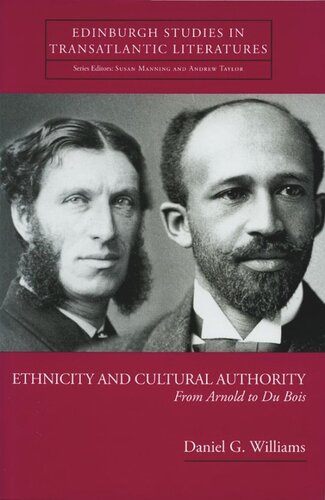

Most ebook files are in PDF format, so you can easily read them using various software such as Foxit Reader or directly on the Google Chrome browser.
Some ebook files are released by publishers in other formats such as .awz, .mobi, .epub, .fb2, etc. You may need to install specific software to read these formats on mobile/PC, such as Calibre.
Please read the tutorial at this link: https://ebookbell.com/faq
We offer FREE conversion to the popular formats you request; however, this may take some time. Therefore, right after payment, please email us, and we will try to provide the service as quickly as possible.
For some exceptional file formats or broken links (if any), please refrain from opening any disputes. Instead, email us first, and we will try to assist within a maximum of 6 hours.
EbookBell Team

4.1
10 reviewsGBS_insertPreviewButtonPopup('ISBN:9780748622054);
Longlisted for the Wales Book of the Year 2007
Writing in 1903, W. E. B. Du Bois suggested that the goal for the African-American was 'to be a co-worker in the kingdom of culture'.
He was evoking 'culture' as a solution to the divisions within society, thereby adopting, in a very different context, an idea that had been influentially expressed by Matthew Arnold in the 1860s. Du Bois questioned the assumed universality of this concept by asking who, ultimately, is allowed into the 'kingdom of culture'? How does one come to speak from a position of cultural authority?
This book adopts a transatlantic approach to explore these questions. It centres on four Victorian 'men of letters' - Matthew Arnold, William Dean Howells, W. B. Yeats and W. E. B. Du Bois - who drew on notions of ethnicity as a basis from which to assert their cultural authority. In comparative close readings of these figures Daniel Williams addresses several key areas of contemporary literary and cultural debate. The book questions the notion of 'the West' as it appears and re-appears in the formulations of postcolonial theory, challenges the widespread tendency to divide nationalism into 'civic' and 'ethnic' forms, and forces its readers to reconsider what they mean when they talk about 'culture', 'identity' and 'national literature'.
Key Features